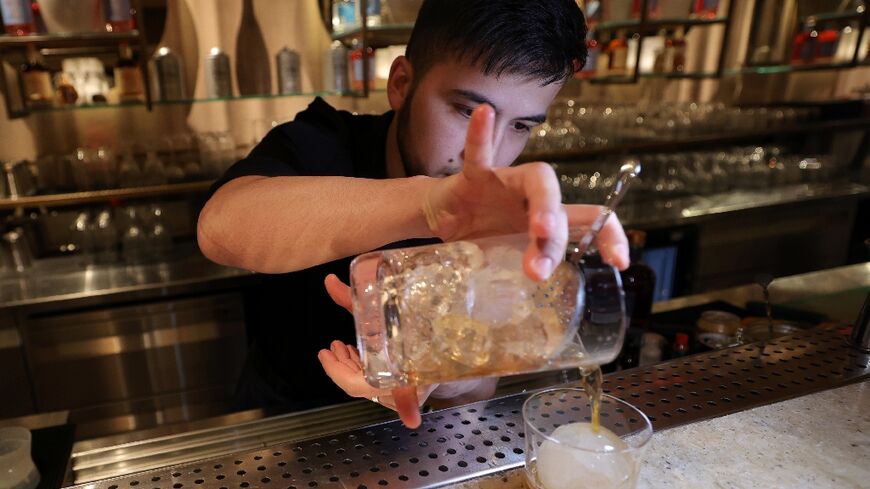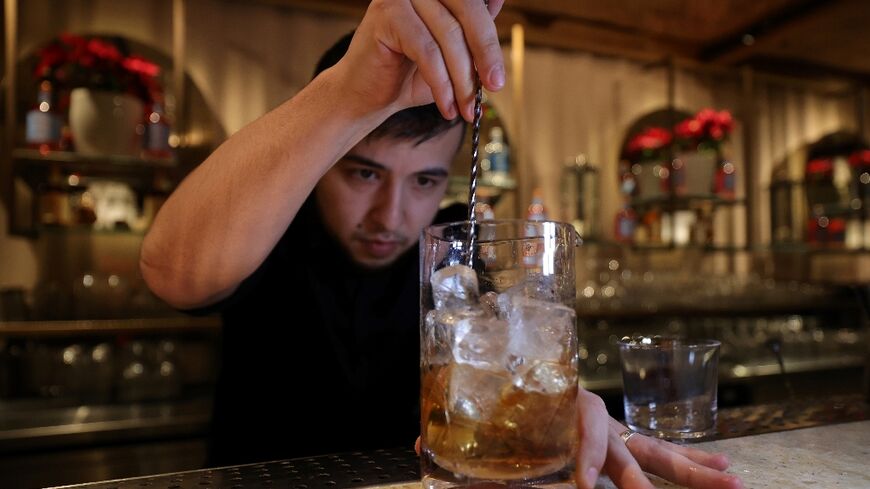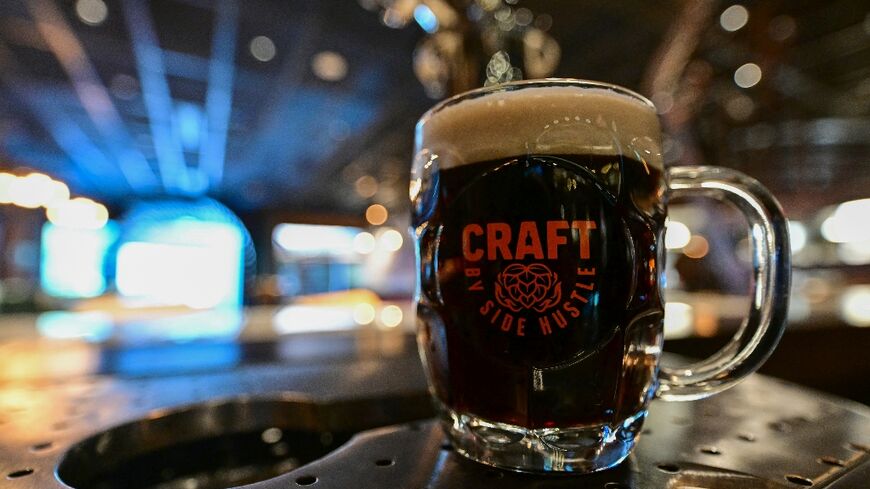What does Saudi's first-ever alcohol store say about new Gulf culture?
Alcohol-free 'mocktails' are also becoming increasingly popular across the region.

Saudi Arabia is planning to open its first liquor store for non-Muslim diplomats in the coming weeks, in the latest shift in the kingdom's conservative societal traditions and more broadly in the Gulf states' culture, where many countries are seeing the opening of alcohol shops and breweries.
Reuters, citing an undisclosed document and a source familiar with the plans, reported on Wednesday that Saudi Arabia was preparing to open the first such store in the capital, Riyadh. Customers will have to register via a mobile app, get a clearance code from the Saudi Foreign Ministry and then keep to monthly quotas with their purchases, the document reportedly stated.
The move is in line with Crown Prince Mohammed bin Salman's vision to transform the conservative country into a tourism, business and entertainment hub, and build an economy that is not reliant on oil revenues.
The new store will be in Riyadh’s Diplomatic Quarter, which houses many of the embassies and diplomats in the Saudi capital. Reuters reported that it would be “strictly restricted” to non-Muslims. Some foreign embassies in the quarter already serve drinks.
Saudi law around alcohol is in strict adherence with Islam, in which alcohol is forbidden. Those caught consuming or possessing alcohol can be fined, sent to jail or experience a public flogging; foreigners can be deported.
Bars have also been opening across the kingdom offering non-alcoholic cocktails, or “mocktails.” One pop-up bar in Riyadh organized by Blended by Lyre's serves alcohol-free Bellinis and spritzes in cocktail glasses.
UAE brewery
Meanwhile, in the United Arab Emirates, until recently all alcohol had to be produced overseas and shipped over.
However, Abu Dhabi published a subtle rule change in 2021 that allows license holders to make their own alcohol on-site. Following the change, Craft by Side Hustle plans to open the country’s first brewery in Abu Dhabi in February after a soft launch in December. The venue has a capacity of up to 280 people and will also serve Cajun food. Beers will cost around 45 dirhams ($12.25) a pint.
The Side Hustle brand was created in the UAE capital by a group of expats who wanted a taste of home.
Founder Chad McGehee, a native of southern Louisiana, moved to the Emirates around 14 years ago when he was working for IBM. His initial ambition was not to open a brewery in the Emirates.
“The inspiration was to create an authentic ‘local’ craft alcohol brand despite the fact brewing and distilling wasn’t allowed. I always thought of it through the lens of being local is more than just producing here,” McGehee told Al-Monitor.
“While it began as a way for myself and friends to enjoy beer styles we couldn’t get from the macro producers and their importers, it grew into a close-knit community of craft enthusiasts who helped us build the brand/branding and even create recipes,” he added.
McGehee said that his company’s cocktail, spirits and wine lists are all filled with “small batch, artisanal offerings” not available in the broader UAE.
When the brewery opened, Side Hustle already had a team of brewers with around 20 years of experience building and operating pubs internationally, so brewing alcohol wasn’t a challenge.
“The first real challenge I faced was to find partners who were experienced in Abu Dhabi food and beverages (an area in which Side Hustle lacked experience) and whose vision for what the capital’s first brew pub should be aligned with ours,” McGehee said.
He then partnered with co-founders Peter Samaha, Nadim Selbak, Adam Davis, Elias Kanaan and the team at Craft LTD to launch the brewery.
McGehee said there was little pushback given the rule change, but he worked with his colleagues to establish the venue in a way that respected the local culture and intent behind the new regulation.
Asked if there is a strong market for non-alcoholic beers in the UAE, he said, “Given the costs and process-specific nuances of producing non-alcoholic beer, we currently do not produce any and do not have a view on the market, but it is something we are exploring. We may consider adding to our offering in the near future should the right product become available.”







